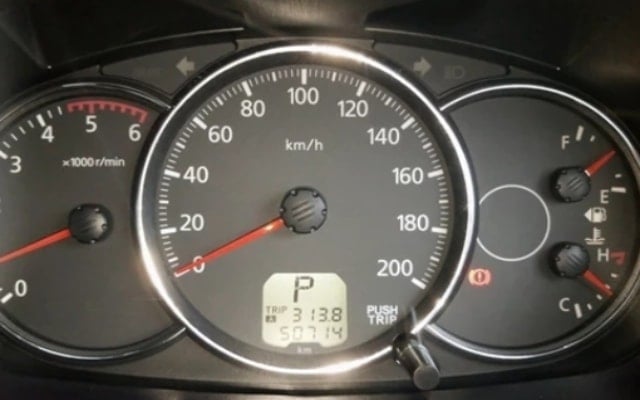
Calculating how many miles you drive each year may seem like a tricky task but it's important to get it right. Mileage is one of the factors used by insurers to calculate your car insurance quote, and underestimating it could result in your policy being invalidated.
What does mileage mean?
Your annual mileage is the number of miles you drive in a year, and insurance companies will ask you for it when it comes to getting or renewing a policy. 2016 statistics from the Department for Transport show that the average mileage per year for all private cars was 7500.
Why is it important I know my mileage?
Insurance
Generally speaking, the higher your mileage, the higher your premium. Of course, there are other factors that may affect your premium too such as your age, where you live and what car you drive - so don’t think you have to dramatically alter your driving habits to get cheaper car insurance.
It's worth spending some time working out what your annual mileage might be rather than just guessing. If you significantly underestimate, it could cost you down the line. If you make a claim and your insurer finds out you’ve misled them about your car’s mileage and usage, they could decide not to pay out.
If your insurer suspects you've knowingly done the same about how you use your car and its expected mileage in order to get a cheaper quote, you could be at risk of invalidating your entire policy.
On the flip-side, if you're overestimating your mileage, you might end up paying more for your premium than you need to. That said, don't get bogged down with serious sums, most insurers will accept a bit of leeway.
If you’re a student, don't forget to let your insurer know if you're planning to leave your car at home during term time - unless you're planning on making a SORN - as your estimated mileage will drop.
Buying a car
As well as helping to calculate your insurance, mileage is something you should consider when buying a used car.
You might think you'd be better off with a low mileage car - as they've been on the road less. But high-mileage cars can actually be a good choice. A vehicle that does a lot of short, stop-start journeys, and never gets to warm up properly, will suffer more wear and tear than one with a higher mileage that spends most of its time in a straight line, and at normal temperature, on a motorway.
Some people selling a used car will illegally use clocking – winding back the odometer - to lower the mileage and up the car’s value. If you’re suspicious about the reported mileage of a car, you can run an AA Vehicle Check or check the MOT history.
Can I get a discount for low mileage?
Some insurers may offer cheaper rates for very low mileage - anything significantly under 7500 - so it's always smart to ask. Look out for restricted mileage car insurance, if you drive less than a set number of miles per day.
How do I calculate my mileage?
If you only use your car every now and then, you can use our mileage calculator to work out the distance of a trip. Once you know how often you plan on making this journey, you’ll have an accurate estimated mileage.
If it's your first year of driving, start by working out the miles you expect to cover in a typical week.
Here's how to calculate your annual mileage
|
If you use your car frequently, and expect to drive a certain amount of miles every day, plus extra trips and journeys, you can estimate an annual mileage following our guide below.
| Miles you drive in a day (approx.) | Miles you drive in a week (approx.) | Miles you drive in a year (approx.) |
| 3 | 21 | 1,500 |
| 5 | 35 | 2,000 |
| 10 | 70 | 4,000 |
| 15 | 105 | 6,000 |
| 20 | 140 | 7,500 |
| 25 | 175 | 9,500 |
| 30 | 210 | 11,000 |
| 35 | 245 | 13,000 |
Alternatively, why not use the mileage recorded on your MOT certificate between the last 2 consecutive MOTs?
This is a good indicator of annual mileage - though remember to make adjustments that reflect any changes to your lifestyle or circumstances.
Keep an eye on your mileage as the year progresses, and if your estimate looks to be a long way under, contact your insurer to revise your cover.
Whether you drive a few miles, a lot of miles, or somewhere in between, you'll need car insurance. We’re happy to give you a competitive quote online, or if you’re planning a change in how often you use your car, get in touch today.

